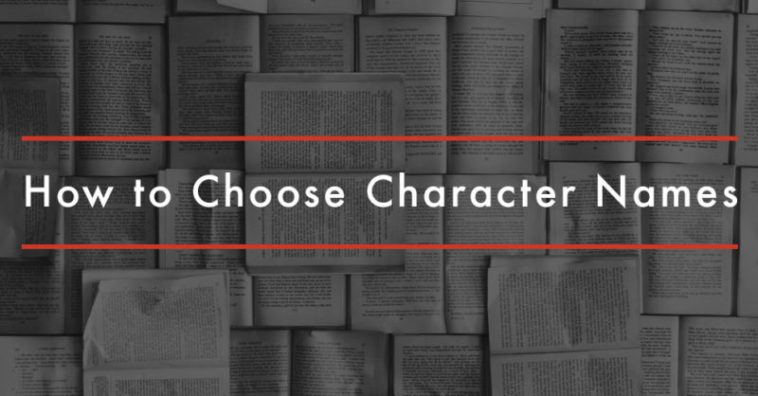Creating characters with names that resonate in the minds of your readers is a task that demands as much consideration as selecting a moniker for a newborn. The process requires finesse, creativity, and an understanding of the balance between memorability and appropriateness unless your narrative embraces humor. As you embark on this journey, remember that lackluster names must be avoided. When the ideal name is discovered, it will resonate deeply.
Names like Atticus Finch, Harry Potter, Sherlock Holmes, and Katniss Everdeen are a testament to the power of a well-chosen character label, evoking the essence of their respective stories. Does the mere mention of these names evoke a spark within you? If they do, it’s likely they immediately transport you to their respective narrative worlds. This article will delve into the art of crafting character names that withstand the test of time, all while adhering to a chosen set of principles.
Making a Name Stick
1. Infuse Memorability into Names
Character names should resonate like music. When selecting common first names, consider giving them an intriguing twist through alternative spellings, such as transforming “Jenkins” into the Old English variant “Jenkyns.” This simple change elevates its memorability without complicating pronunciation.
2. Delve into Meaning
Draw inspiration from etymologies, historical significance, or cultural relevance. Iconic names like those in “The Matrix” carry symbolic weight. “Smith” embodies a generic character in a virtual realm, while “Neo” encapsulates the protagonist’s newness to reality. The name “Morpheus” alludes to the god of dreams, aligning with the character’s role in awakening the protagonist.
3. Bestow Purposeful Names
Allegorical narratives often feature characters with overt names like “Prudence,” “Truth,” or “Pride.” In crafting character names, intertwine their roles and themes with their meanings. George Lucas ingeniously crafted Darth Vader, fusing “dark” and “Vader,” the Dutch word for father. J.R.R. Tolkien’s “Frodo Baggins” choice signifies wisdom through experience with “fróda.”
4. Fit the Name to the Character
Name-personality alignment enhances your narrative. Stephen King’s “The Green Mile” showcases this with the character “Percy Wetmore,” whose name aptly embodies his nature. Similarly, respect historical, geographical, and ethnic contexts. A Greek character wouldn’t suitably be named “Bubba Jackson.”
5. Prioritize Readability
Unless complex pronunciations serve a narrative purpose, opt for reader-friendly names. Characters like “Wojciechowski” can be creatively streamlined for ease of use, like adopting the nickname “W.”
6. Ensure Distinctiveness
Prevent reader confusion by crafting distinct names for each character. When breaching this guideline, ensure that first and last names differ significantly. Observe how J.K. Rowling masterfully distinguished characters like “Harry Potter,” “Hermione Granger,” “Helga Hufflepuff,” and “Hedwig.”
7. Embrace Nicknames
Imbue main characters with nicknames reserved for their inner circle. Princess Gwendolyn becomes “Gwen” or “Lyn” among close friends and family, enhancing memorability without overindulgence.
8. Account for Pronunciation
Contemplate pronunciation when selecting names. Choose character names that readers can comfortably vocalize, except when pronunciation intricacies are intrinsic to the story.
Unearthing Character Names
Diversify your sources to uncover the perfect character names:
1. Baby Name Lists
Online baby name resources furnish gender-neutral options, along with origins and meanings. Explore foreign names for an exotic touch, or choose character names prevalent in your story’s era.
2. Online Name Generators
Delve into AI-powered generators for inspiration, but avoid heavy reliance due to nonsensical suggestions. Employ them as creative launchpads.
3. World Almanacs and Atlases
Craft unique names by combining contemporary leaders’ first names with historical figures’ surnames. Seek authenticity by avoiding overly famous pairings.
4. Wikipedia
This goldmine provides comprehensive lists of first and last names categorized by region and country.
5. Media Inspirations
Media platforms harbor memorable character names. Examine movies, sitcoms, commercials, and news stories for distinct names that could seamlessly fit your narrative.
6. Life’s Rich Tapestry
Draw inspiration from the world around you. Names of acquaintances, service personnel, and admired individuals can coalesce to form compelling character names.
7. Anagrams as Clues
Utilize anagrams as a playful method to embed hints within your story. Iconic examples include “Neo” representing “One” in “The Matrix” and “Tom Riddle Marvolo” decoding into “I am Lord Voldemort” in the Harry Potter series.
The Joy of Name Selection
Creating character names is akin to sculpting the essence of your narrative. As a Pantser or Outliner, relish this process. Engage with your characters, allowing their essence to guide name selection. This article serves as a cornerstone to assist you in this artistic endeavor. Utilize the Character Arc Worksheet to delve deeper into your characters’ identities.
Remember, Choose Character Names is a mantra that reverberates throughout the crafting of unforgettable literary figures. With diligence and creativity, you can forge names that transcend the pages of your story and etch themselves into readers’ minds for generations to come.




